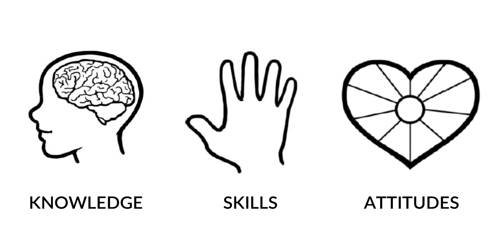Training is the process of teaching the new and/or present employees the basic skills they need to effectively perform their jobs. Training adults are very different from teaching pre-schoolers. Kids have little world experience, so they absorb anything the teacher says. However, most adults are world-weary and a trainer has to do a little more to get them to learn.
In general, adults learn best when what they feel the lessons taught is going to be useful. They may understand the importance of training, but they also need to experience its applicability. If they can’t see its application in real life, they’ll simply be going through the motions.
Qualities of Effective Trainers
While some of these qualities are obviously necessary for anyone in a teaching position, others may not seem as necessary, such as being patient or open-minded. All of these attributes, however, contribute to making top-notch trainers. All the best trainers are:
Good communicators. They speak well, express their thoughts clearly, and have an engaging presentation style.
Knowledgeable. They know their topic cold. They understand all the concepts and know all the details. They can answer questions thoroughly and at a level that trainees understand. If they ever can’t answer a question, they know exactly where to go to get that answer and they promise to do so as soon as possible.
Experienced. They know what they’re talking about. They’ve been on the field doing what they teach in training.
Good with people. Their personality styles may vary, but they enjoy working with people. They can engage groups of people and work with them to meet training goals.

Interested in learning. They recognize the value of learning in their own lives and want to help others learn. They find satisfaction in sharing with others the skills and knowledge they have acquired through hard work and persistence.
Patient. They understand that people learn in different ways and at different paces. They take the time to make sure each trainee understands what’s going on and leaves training sessions with the skills and knowledge he or she came to acquire.
Open-minded. They respect other people’s points of view and know that there are often many ways to achieve the same objectives. They don’t assume they know everything but instead are willing to listen to and learn from trainees.
Creative. They bring ingenuity and their own natural curiosity to the task of training. They create an environment in their training sessions that encourage learning and inspires trainees to reach beyond what they already know to explore new ideas and methods.
Well-prepared. They know their material, their objectives, and their plan of presentation. They’ve checked to see that any equipment they expect to use in training is in place and operational. They’ve made sure that all supplies and supporting materials are available in the right quantities.
Flexible. They are able to adjust their training plan to accommodate their audience and still meet all training objectives.
Well-organized. Good trainers can handle several tasks at once. They know how to manage their time and their work.
Information Source:
















